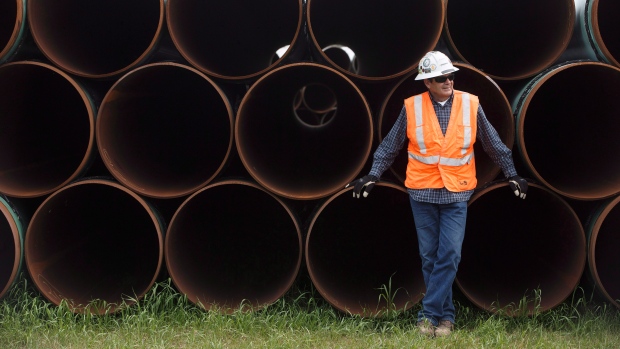Dec 21, 2018
Canadians divided on best way to solve energy woes: Nanos poll

Canadians say they think something has to be done to help the country’s struggling oil-and-gas industry — but they’re far from agreeing on how it should be done.
A survey released Friday, conducted by Nanos Research and commissioned by CTV News, shows that Canadians are split on the future of pipeline construction, as well as how the federal and Alberta governments have responded to the issue thus far.
Thirty-nine per cent say pipeline construction is headed in the right direction to benefit the Canadian economy, while another 39 per cent say it’s headed in the wrong direction. Twenty-two per cent said they are unsure.
Respondents were also divided on the federal government using tax dollars to help the Alberta government and oil companies deal with low Canadian crude prices. Thirty-one per cent of Canadians oppose this type of move and 20 per cent are somewhat opposed, while 22 per cent are supportive and 24 per cent are “somewhat” supportive. Four per cent are unsure.
On Tuesday, Ottawa announced it will provide more than $1.6 billion to help boost the energy sector. The news was met unfavourably by Alberta Premier Rachel Notley and some in the oil patch, including Whitecap CEO Grant Fagerheim who said the sector is not looking for a “handout.”
Meanwhile, about 50 per cent of Canadians say Notley’s proposition of a short-term measure — in which the province and Ottawa would partner to buy new railway tank cars to relieve the supply glut — is a “poor” or “somewhat poor” idea. Forty-three per cent think this is a “good idea” or a “somewhat good idea,” while six per cent said they are unsure.
Furthermore, 47 per cent of respondents said the federal government should wait for environmental assessments and negotiations with First Nations to be completed before approving pipeline construction projects. On the other side of the equation, 40 per cent said Ottawa should do as much as it can to fast-track pipeline approvals. Ten per cent said the government should not change its strategy, while four per cent said they are unsure.
Nanos surveyed 1,000 Canadians, between Nov. 30 and Dec. 5, as part of an omnibus survey. The margin of error is plus or minus 3.1 percentage points, 19 times out of 20.





